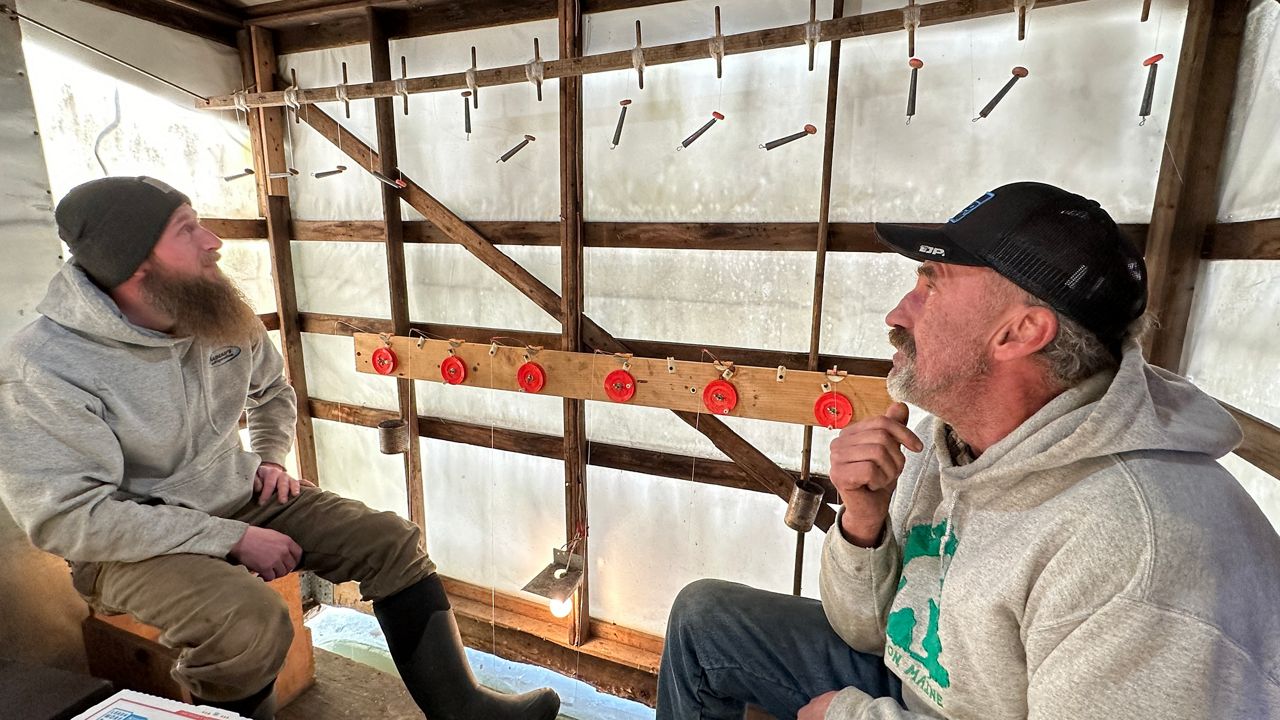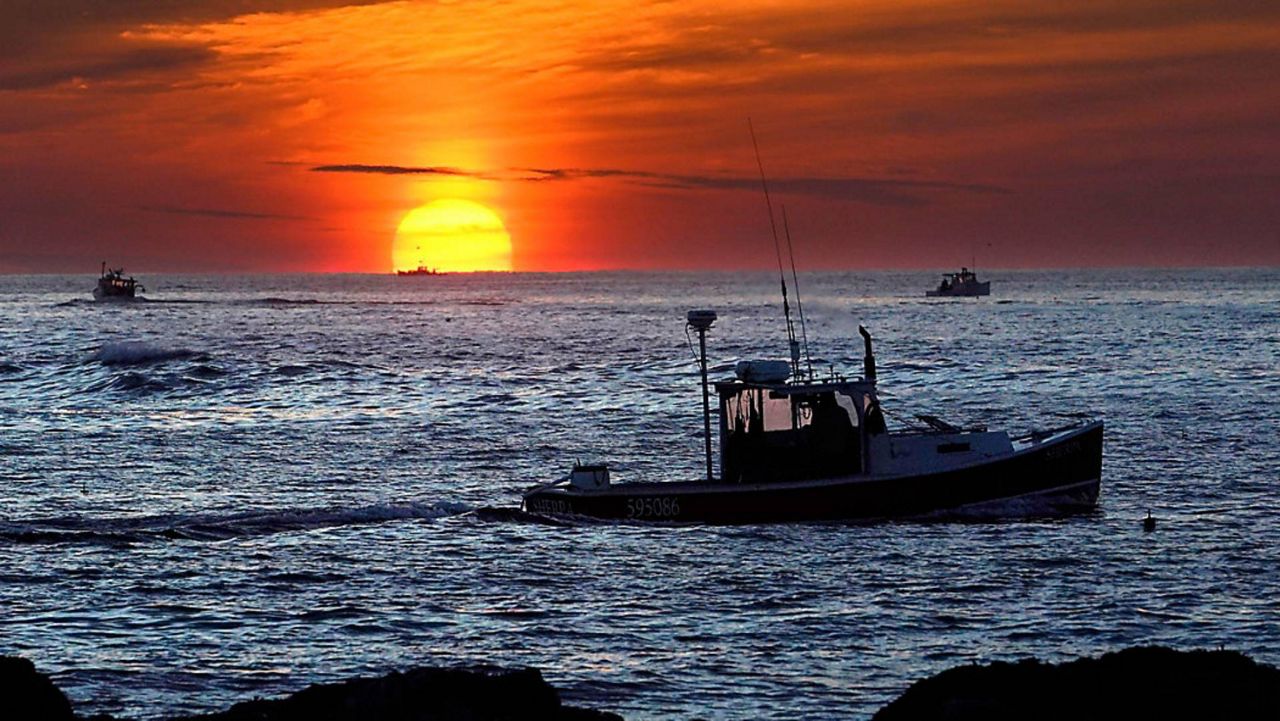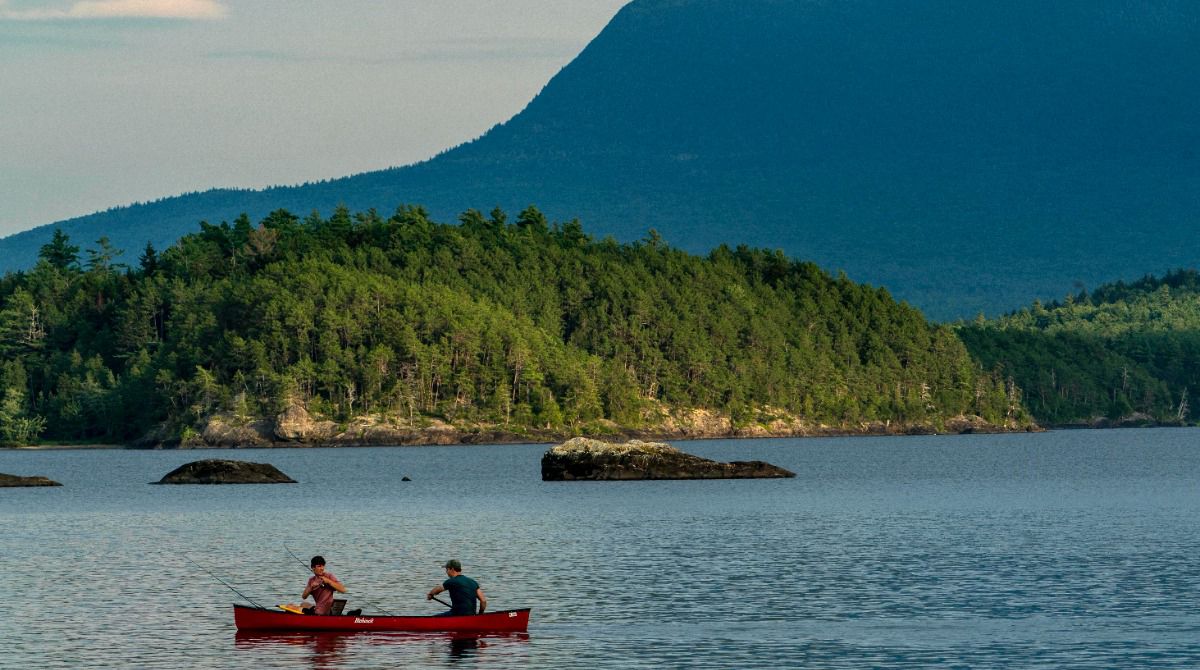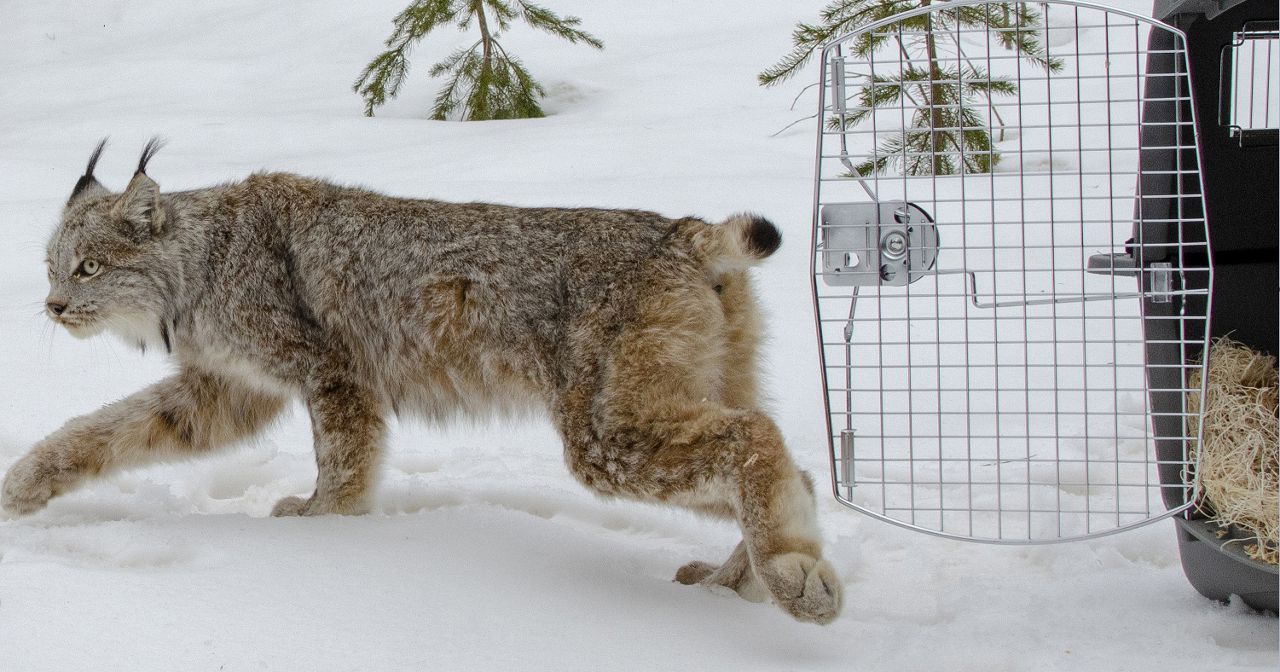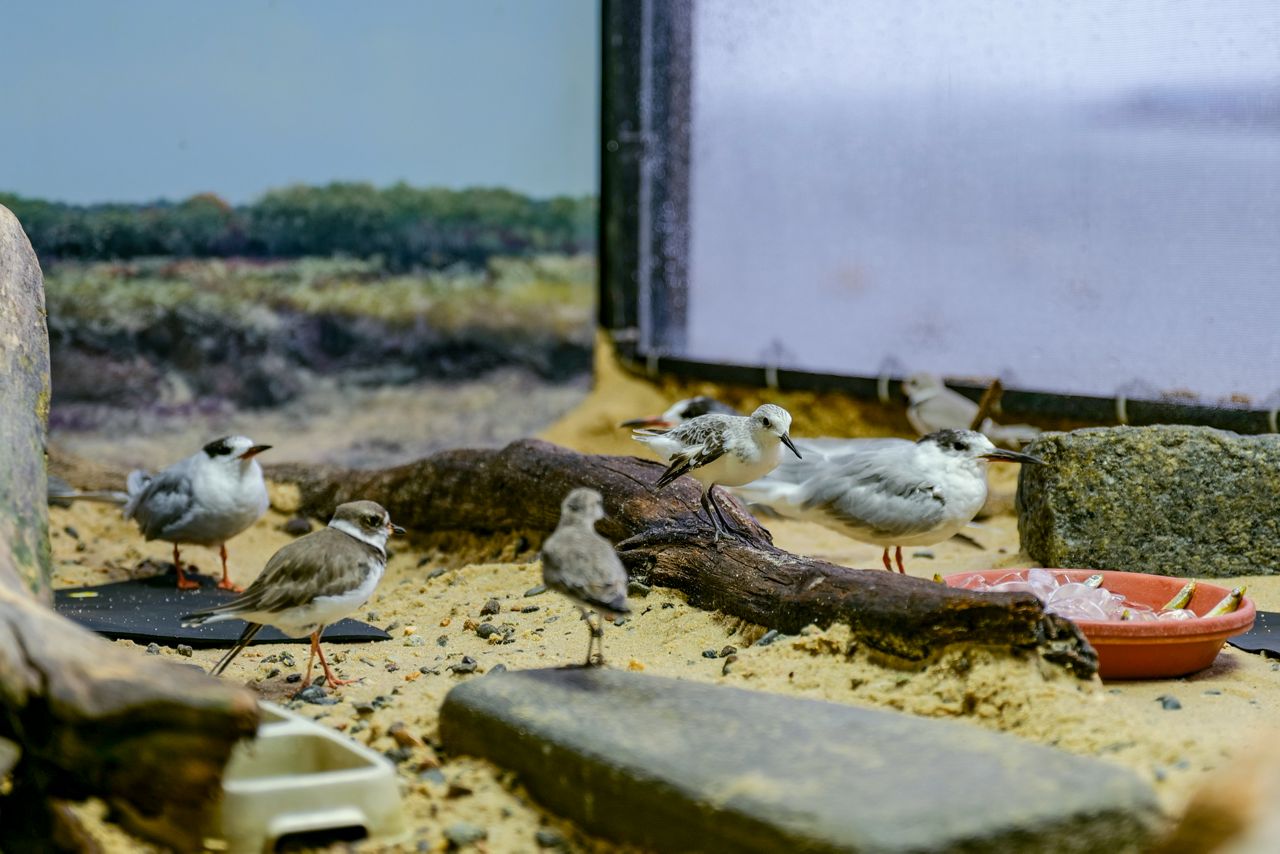Smelt shacks are out on the Kennebec River — at least for now.
This week more than a dozen shacks line the eastern shore of the river at Jim Worthing’s Smelt Camps in Randolph.
Out on the ice on Monday, the fish were not yet biting.
“It’s better than sitting in the house,” said Jeremy Brewer, 38, of Dresden. “It’s a little mini house on the ice.”
Inside that mini-house, Brewer and his friends used blood worms on long lines to try to entice the smelt. A small woodstove kept the inside of the shack toasty warm as winds howled outside and three bald eagles screeched to each other in the distance.
There are commercial smelt fishing camps in central Maine on four different rivers — the Kennebec, Eastern, Cathance and Abagadasset, according to the Department of Marine Resources.
DMR scientist Mike Brown said the smelt are listed as a species of concern because of continued declines in their numbers over more than two decades.
“They are suffering the fate of a lot of our species, whether it’s climate change or changing water temperatures,” he said. “Smelts are fairly vulnerable.”
Regulators have closed southernmost Maine to fishing for smelt using dip nets and fishermen in central Maine are restricted to taking one gallon per licensed fisherman, he said.
Brown recommends a base of 6 inches of ice or more before putting a shack out on the water. He doesn’t expect the half-dozen commercial smelt camp businesses to all open this year with uncertain ice conditions.
And with temperatures predicted to hit the 40s by the end of the week, ice conditions could change quickly.
But for those who can catch a few this season, Brown recommends the small fish.
“Smelt are delicious,” he said. “They are very, very good to eat.”
Brewer said he remembered past years when they could barely keep up with their lines because so many fish were biting. He jumped at the chance to get out on the ice Monday after seeing the shacks go up.
He and his friends rented the shack for six hours and hoped for a last-minute run before they had to head home.
“We’re hoping later it will pick up,” he said. “It probably will right before we go. A little flurry and we’re out of here.”




